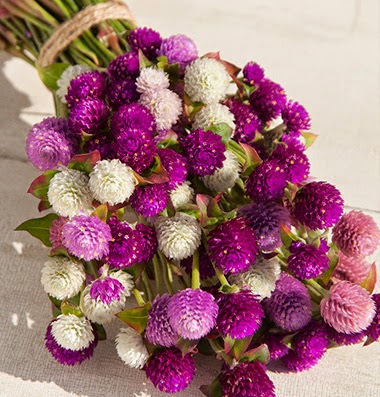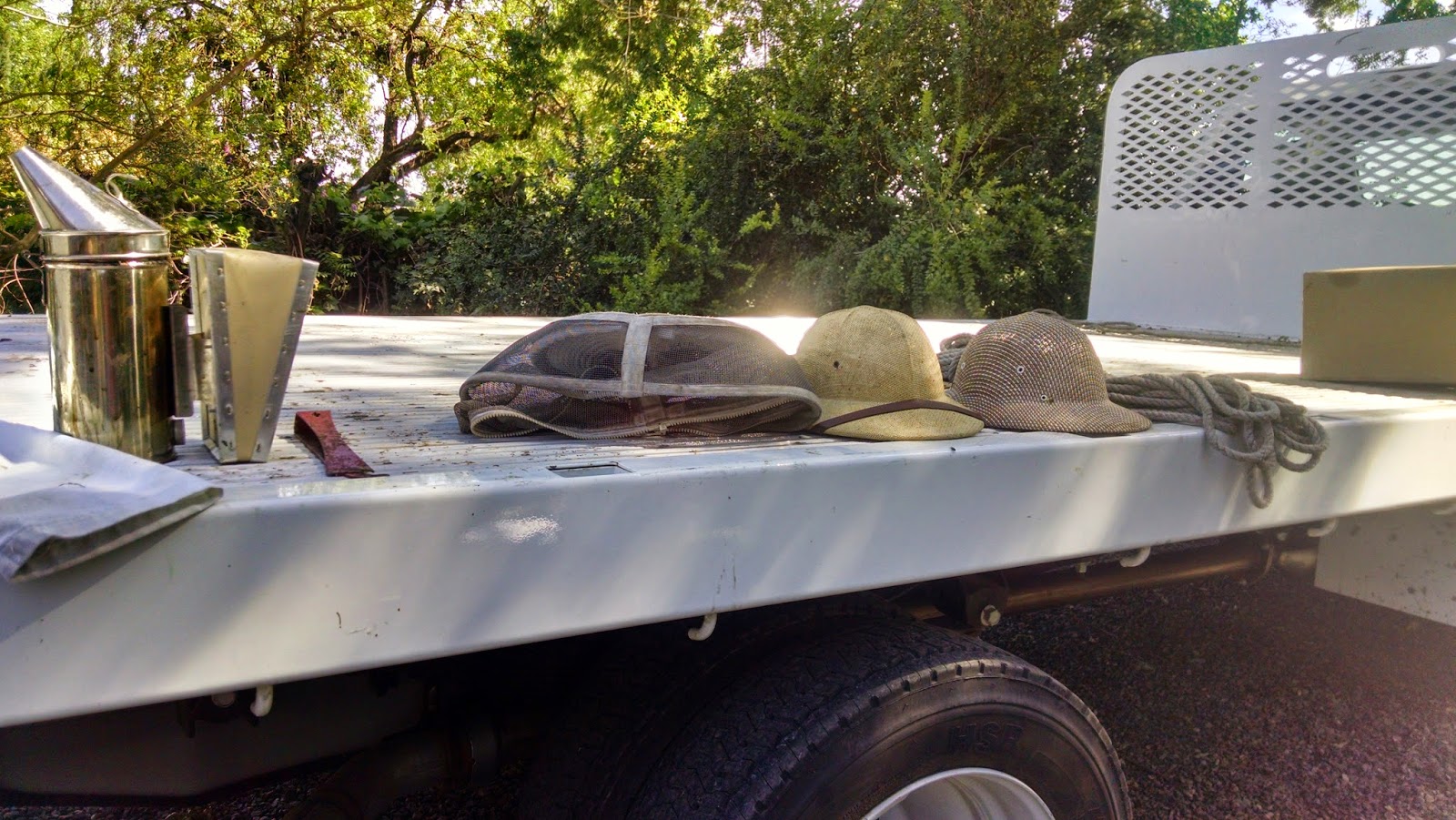Hello and welcome back!! During the last few days, we had a big rain and thunder storm. Then we had some winds and this week the heat is starting up.
We have been planting, planting, and more planting in the vegetable gardens. And with the rain, the weeds start creeping up. The vegetables planting is my #1 priority and I only plant my annual flowers after the majority of veggies are done.
The ground had been disked previously, by Frank but after the rain, wind and heat, it has turned out to be a brick field. Hard on top so it has been rotatilied again. Since we live at almost sea level; have very hot weather, most flowers I grow in my fields have to be sun tolerant. I actually have to look hard in my yard for any spot where there might be shade. I have some really fun flowering plants in store for my customers this year. A few of them I have never grown before, but most are like having old friends back with me. I wanted to share my choices with you.

Bells of Ireland-these are so interesting, they remind me of orchids in some ways. I planted these for a couple of years in a row, but then didn't last year and I was very sorry I didn't. It makes a great filler with other flowers, or very architectural on it's own. I was previously discouraged because inside each pedal, sometimes there would be a torn type pod and I was worried people would put their nose to it and get hurt. I read more about it and found out that I just need to pick the flower stem sooner, that the ones with the thorns are going to seed. Lesson learned.
These adorable flowers are called Gomphrena,Globe amaranths, they come in various colors from white to pinks to dark pink/purple and come even in a red color. They also can be dried. They remind me of what an old fashioned garden looks like, with these little pods of colors mixed in with other greenery or taller shrubs. They do grow to be as high as 24" but the leaves and greenery seems to get lost when the pods start to have color. If you haven't ever grown these in your yard, think again. The seeds are not easy to find, I normally buy mine from catalogs.


Celosia is an old time favorite of mine, another heat tolerant plant. It is also called cockscomb, is very tropical looking. Some people get creeped out about them because they do have the look of, (dare I even say it so you will think it), a brain!!!
It too, comes in various colors from pinks, red flames, orange, yellow. The variety of plants also come in "plumes" which really adds to an arrangement. Any time you have movement in a bouquet, I find it much more interesting. And the plume is a flower people like to touch. Some of the heads of the Celosia can get really large and become the center stage flower of an arrangement.
Nigella (also known as Love In A Mist) has become my new love for the garden. I had planted this a few years ago not knowing really what I was doing. It had the sweet little small straw like looking flowers,similar to bachelor buttons, I would use them every now and then in arrangement. Then it dried and I had not done any subsequent plantings to keep the flowers longer through the season. While weeding that area, I noticed these interesting and quite beautiful pods.
It was like getting two types of flowers off of one plant. The leaves look like fennel and even those look great in an arrangement. I believe you will start seeing more and more pod type flowers in wedding and special event arrangements. People are drawn to items in arrangements that represent more "natural" settings. The pods do look like you might have gone out into a field and picked something wild.Another flower on my LOVE LOVE list,
Erynogium-Sea Holly. Aren't they interesting looking, almost thistle like, but the color is just dreamy. I read someplace that someone described them like fireworks in your garden. So true. There are different varieties of them, some more silver to more blue, some smaller or larger.
 Can you garden and not have any sweet peas!!! Absolutely not. They come in early in the spring, if you are lucky enough to have a mild spring and mild early summer, as long as you keep cutting them, they will last. I had some come back early from last year's seed plus I planted more in early March. I cut myself a large bouquet for the kitchen and the sweet smell is intoxicating as soon as you walk into that room. People just can't help themselves putting their face right in the middle of them. The farmers that have the roadside strawberry farms around Northern California seem to always grow them to sell at the early Farmer's Markets and at their stands. Treat yourself. Unfortunately, as soon as it heats up, they bolt to seed. I planted mine near my greenhouse for two reasons this year. #1 is because it will give them a slight wind break because the ones I planted are climbers. I didn't even realize until this year that there are varieties of sweet peas that are bush like. See how gardening is a never ending education!!! #2 reason is because I am going to put a shade cloth over my greenhouse and attach it to my sweet pea support poles, giving them some shade. I am hoping to extend my season a little longer, will report back on this experiment in a later blog.
Can you garden and not have any sweet peas!!! Absolutely not. They come in early in the spring, if you are lucky enough to have a mild spring and mild early summer, as long as you keep cutting them, they will last. I had some come back early from last year's seed plus I planted more in early March. I cut myself a large bouquet for the kitchen and the sweet smell is intoxicating as soon as you walk into that room. People just can't help themselves putting their face right in the middle of them. The farmers that have the roadside strawberry farms around Northern California seem to always grow them to sell at the early Farmer's Markets and at their stands. Treat yourself. Unfortunately, as soon as it heats up, they bolt to seed. I planted mine near my greenhouse for two reasons this year. #1 is because it will give them a slight wind break because the ones I planted are climbers. I didn't even realize until this year that there are varieties of sweet peas that are bush like. See how gardening is a never ending education!!! #2 reason is because I am going to put a shade cloth over my greenhouse and attach it to my sweet pea support poles, giving them some shade. I am hoping to extend my season a little longer, will report back on this experiment in a later blog. My last flower I wanted to suggestion to you, whether you have a small, medium or large garden is the Zinnia. It blooms its' heart out, had every color of the rainbow, well almost doesn't have a blue; comes in single, double, or ruffled varieties; the plants can get very tall but there are also short varieties. The bees and butterflies love them. And you can cut and cut and cut clear to the end of summer. I plant an early row in late March; then another row in April; and another row in June and I can cut hundreds of bouquets and the garden is always looking like a paradise of colors. The seed catalogs have come up with some fabulous new colors, my favorite is the Queen Red Lime, I found in the Burpee catalog. These are truly fabulous and can stand on their own without adding any other flowers to the bouquet. The seeds are a bit expensive for a grower of my size farm, but I still always have part of a row dedicated to them. I have a few customers that only request a bouquet with them.
My last flower I wanted to suggestion to you, whether you have a small, medium or large garden is the Zinnia. It blooms its' heart out, had every color of the rainbow, well almost doesn't have a blue; comes in single, double, or ruffled varieties; the plants can get very tall but there are also short varieties. The bees and butterflies love them. And you can cut and cut and cut clear to the end of summer. I plant an early row in late March; then another row in April; and another row in June and I can cut hundreds of bouquets and the garden is always looking like a paradise of colors. The seed catalogs have come up with some fabulous new colors, my favorite is the Queen Red Lime, I found in the Burpee catalog. These are truly fabulous and can stand on their own without adding any other flowers to the bouquet. The seeds are a bit expensive for a grower of my size farm, but I still always have part of a row dedicated to them. I have a few customers that only request a bouquet with them.
Have some fun trying something new in your garden. A seed packet is fairly inexpensive, sprinkle some seeds in your flower bed and be surprised what may show up!!1 Maybe a Sea Holly? Or a Nigella?
My next post will show you how I purchase, plant and grow onions, so come back again. (Photo from Johnny's Seed catalog)

































